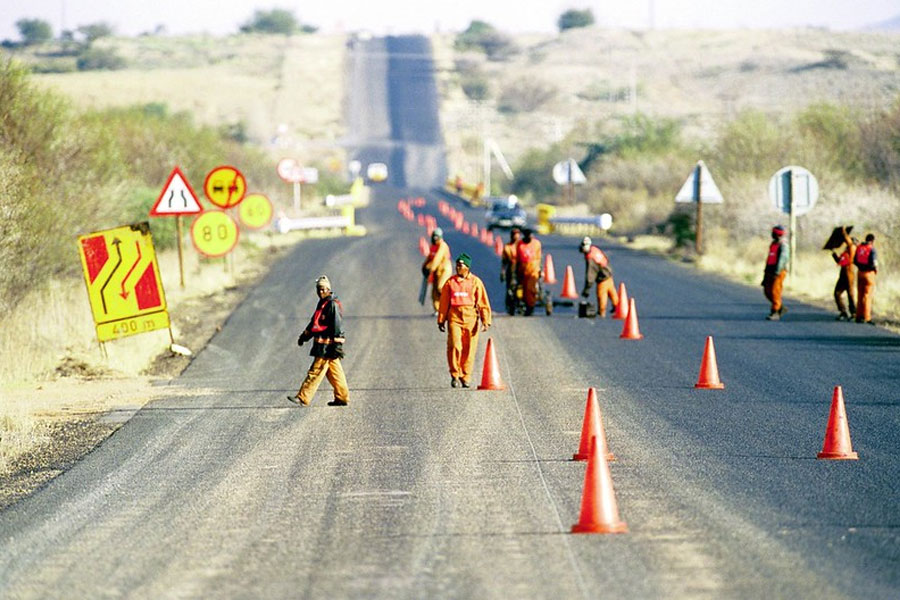
Mar 9 , 2019
By FASIKA TADESSE ( FORTUNE STAFF WRITER )
Lion Insurance, which reported unsatisfactory performance for the past two years, made a notable achievement during the last fiscal year.
The firm’s after-tax profit soared by 112pc to 32.4 million Br, pushing up earnings per share (EPS) by four Birr to 9.4 Br.
Lion’s financial performance was impressive, according to Abdulmenan Mohammed, a financial statement analyst with over 15 years of experience in Ethiopia and the United Kingdom.
“The shareholders of Lion must be delighted to enjoy such massive growth in EPS after half a decade of decline,” said Abdulmenan.
Gebru Meshesha, the chairperson of Lion’s board of directors, also remarked that the company had made commendable achievements in terms of volume, net worth and compliance aspects.
“Despite volatile security and market challenges encountered during the year and beyond,” said Gebru, “remarkable accomplishments have been observed in various strategic areas that are believed to lay a firm foundation to sustain our company.”
The insurance industry nationwide earned 1.3 billion Br in net profit in the last fiscal year from 8.6 billion Br generated from insurance underwriting.
Reduction in claims and increased commission and interest income in investments played major factors in profit growth.
Claims paid out by Lion dropped by 11pc to 89.9 million Br, contributing to the improvement of after-tax profit.
Addressing weaknesses in claims handling has helped the firm to reduce losses, according to Negasi Yoseph (PhD), the Chief Executive Officer of Lion. The insurer was established in 2007 by 300 shareholders with paid-up capital of 16 million Br and subscribed capital of 66.4 million.
“We have minimised extra expenses incurred by garage fees, spare parts and claims administration,” Negasi told Fortune. “We have also used premium loading on high-risk clients and products.”
Lion has managed to reduce claims, while most other insurance firms faced soaring claims in the last fiscal year. In the reporting period, the 17 private insurance companies paid out 3.5 billion Br in claims.
“If claims continue to be well-controlled, improvement in profit is inevitable in the years to come,” commented Abdulmenan.
Commissions earned from reinsurers increased by eight percent and reached 20.1 million Br. Income from investment activities increased considerably with interest income rising by 35pc to 13.7 million Br and dividend income registering a modest increase of five percent to 4.4 million Br.
Even though the firm’s profit has increased significantly, Lion's gross written premium recorded a 5.7pc increase to 350.9 million Br.
“This is disappointing,” said Abdulmenan. “The management should work hard to increase gross written premium at least in line with the market growth rate.”
Out of the total gross written premium, Lion ceded 26pc to reinsurers, leading to a decrease in its retention rate by three percentage points to 74pc.
“Lion's retention rate is lower than that of many insurance companies,” observed Abdulmenan.
Paid-up capital growth and shifting high-risk products to the re-insurers have caused the retention rate to decline, according to Negasi.
“We retained the products that are profitable and ceded medium and high-risk products,” Negasi told Fortune.
Lion’s expenses have also expanded considerably. Total employees and general administrative expenses increased by 22pc to 37.67 million Br.
Lion's market share fell by 0.6 percentage points to 4.3pc last year, though it operates 39 branches with 312 employees.
“The growth in expenses at Lion is in line with the industry’s rate,” said Abdulmenan.
Total assets increased by 14pc to 604.9 million Br, with 192.1 million Br invested in time deposits, shares and bonds.
These investments represent 31.8pc of Lion's total assets, whereas the ratio of the industry is over 43pc.
This must have been due to considerable resources invested in properties, mainly buildings, according to Abdulmenan.
Moreover, Lion maintained huge cash balances.
Liquidity ratios, ratios that indicates whether a company's current assets will be sufficient to meet its obligations when claims come due, show that the liquidity level of Lion is high.
Its cash and bank balances increased by 79pc to 89.7 million Br, and its ratio of cash and bank balances to total assets went up to 14.8pc from 9.5pc.
The liquidity level of Lion was more than what is required for day to day operations, and there is ample room for a reduction of liquid assets to increase earnings from investment activities, according to Abdulmenan.
While recognising the risk of holding cash due to devaluation and inflation, Negasi asserts that regulatory limitations on investments made them hold on to cash.
“As our asset-to-liability ratio is 120pc, we could not change the cash into fixed asset,” he said.
Insurers whose ratio of current asset to current liabilities is less than 105pc can change liquid assets to fixed assets.
“We expect this law to be amended in the current reforms by the National Bank of Ethiopia,” Negasi told Fortune.
The paid-up capital of Lion has also significantly increased by 40pc to 93.2 million Br. Its ratio of capital and non-distributable reserves to total assets increased to 20.5pc from 17.8pc.
Lion has a strong capital position, and it should utilise this resource by expanding its business, recommended Abdulmanan.
PUBLISHED ON
Mar 09,2019 [ VOL
19 , NO
984]

Fortune News | Jan 01,2022

Radar | Jul 30,2022

Agenda | Aug 18,2024

Radar | Nov 12,2022

Advertorials | May 29,2023

Commentaries | Jan 31,2021

Commentaries | Sep 10,2021

My Opinion | Sep 14,2024


Exclusive Interviews | Jan 05,2020

Dec 22 , 2024 . By TIZITA SHEWAFERAW
Charged with transforming colossal state-owned enterprises into modern and competitiv...

Aug 18 , 2024 . By AKSAH ITALO
Although predictable Yonas Zerihun's job in the ride-hailing service is not immune to...

Jul 28 , 2024 . By TIZITA SHEWAFERAW
Unhabitual, perhaps too many, Samuel Gebreyohannes, 38, used to occasionally enjoy a couple of beers at breakfast. However, he recently swit...

Jul 13 , 2024 . By AKSAH ITALO
Investors who rely on tractors, trucks, and field vehicles for commuting, transporting commodities, and f...

Jun 28 , 2025
Meseret Damtie, the assertive auditor general, has never been shy about naming names...

Jun 21 , 2025
A well-worn adage says, “Budget is not destiny, but it is direction.” Examining t...

Jun 14 , 2025
Yet again, the Horn of Africa is bracing for trouble. A region already frayed by wars...

Jun 7 , 2025
Few promises shine brighter in Addis Abeba than the pledge of a roof for every family...